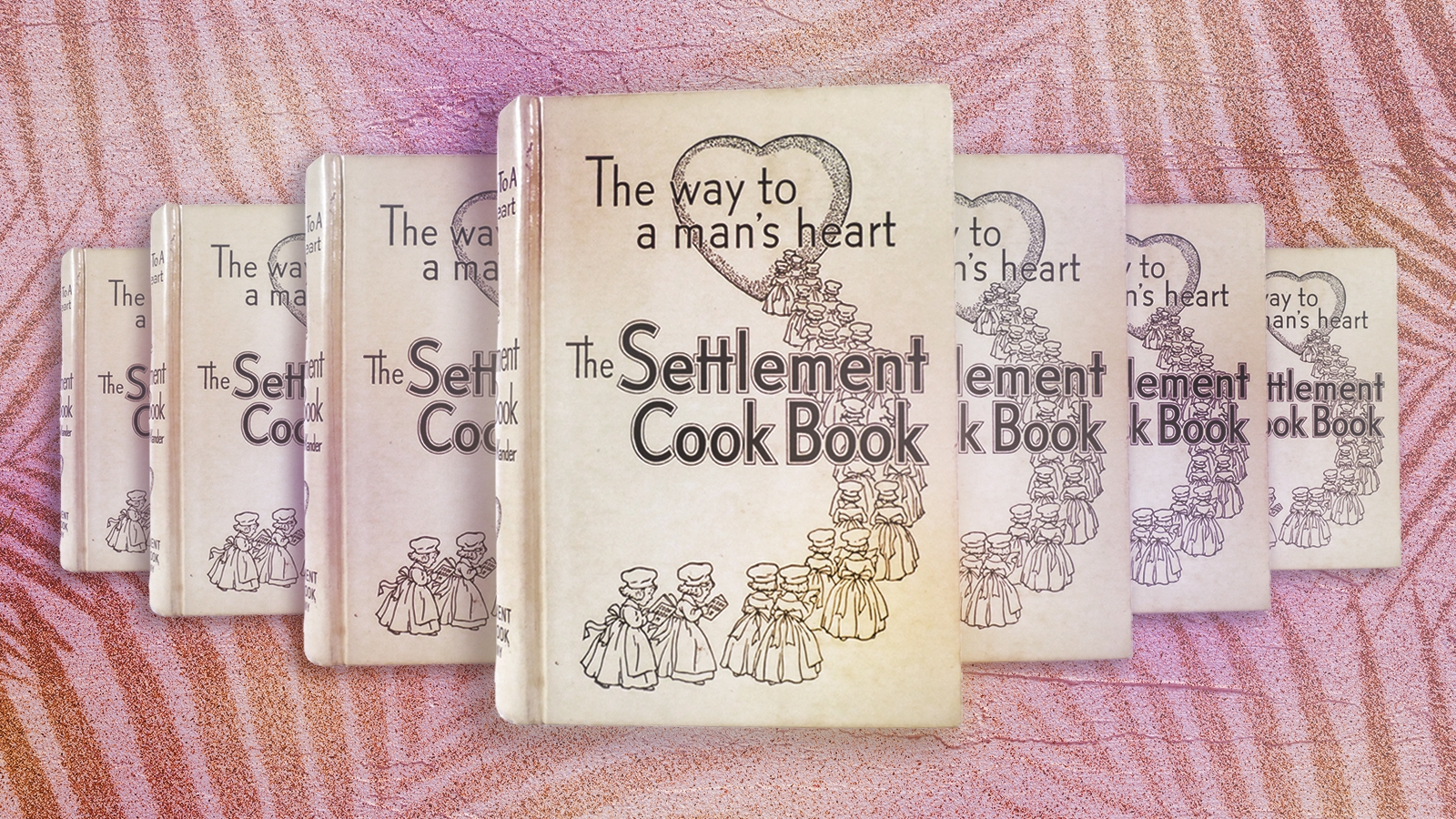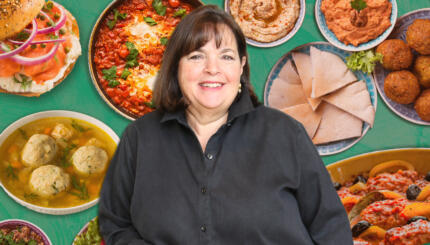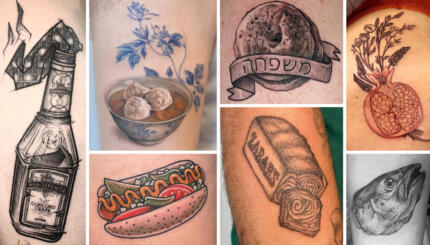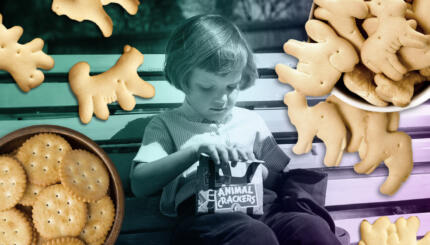On a bookshelf in Beachwood, Ohio sits a small, yellow, weathered cookbook, marked by years of page-turning, ingredient-spilling and joyful preparation for the Jewish holidays.
This is “The Settlement Cook Book,” a collection of recipes and overall guide to running a 1940s household, originally compiled by Lizzie Black Kander in 1901, though constantly updated through the century. The copy I flip through belongs to my grandmother, Betty Sass, who received the 1947 edition as a wedding gift. At 97 years old, my grandmother still remembers her favorite recipes, down to the page number.
“If you turn to page 429, chocolate cake, you’ll see my fingerprints from all the years I baked that thing,” she tells me. “It was my favorite cake to make. It was a messy process every time.”
Some recipes in this book are familiar and comforting: brisket, noodle kugel, “matzos” apple pudding. Some, less so: canned salmon loaf, frozen cheese ring, jellied veal loaf and a dish I’ll never get over called “shrimp wiggle.”
The Nosher celebrates the traditions and recipes that have brought Jews together for centuries. Donate today to keep The Nosher's stories and recipes accessible to all.
Nevertheless, my grandmother assures me that this book was her go-to guide when it came to cooking for the Jewish holidays. She tells me that the book provided both the basics of traditional Jewish cooking, along with a “modern” take on running a household.
“It was a very popular gift to receive as a young bride right before your wedding,” my grandmother tells me, “all my girlfriends were given a copy by another girlfriend.”
Above the title of this book, is the tagline: “the way to a man’s heart.” Below that is an illustration of a line of young women in aprons, all marching together towards the word, “settlement.”
When I ask my grandmother if she thinks certain societal components of this book are a bit antiquated, she simply says to me, “that was then and this is now.”
Upon a little research, I learn that “settlement” does not connote exactly what I think it does. The term is actually in reference to the Settlement House of Milwaukee, which housed largely Jewish immigrant families who had arrived from Europe. Lizzie Kander, who was both Jewish and a Wisconsin native, was one of the original founders of the Settlement House and had a deep desire to help recent immigrants adjust to life in the U.S.
“The Settlement Cook Book” preserved the traditional European-Jewish dishes and modernized them. The book provided a way for Jewish immigrants from Europe to both assimilate to a new culture and hold on to their own heritage.
Holding the book in my hands, I feel not only connected to my grandmother’s history but the history of all the Jewish immigrants who used this book. I have a fondness for many of the recipes in this cookbook, particularly the stick-to-your-bones traditional Jewish dishes such as corned beef and potato latkes.
I’m also enticed by some of the more retro recipes. Not enough to make them, (or should I?) but to try and imagine the place they had on the Jewish-American table in the 40s and 50s. During this time, the American cooking landscape was slowly entering a new, bizarre and exciting period of gelatin, whipped topping, canned cheese, and a flurry of other processed foods that were all the rage among the “modern” American family.
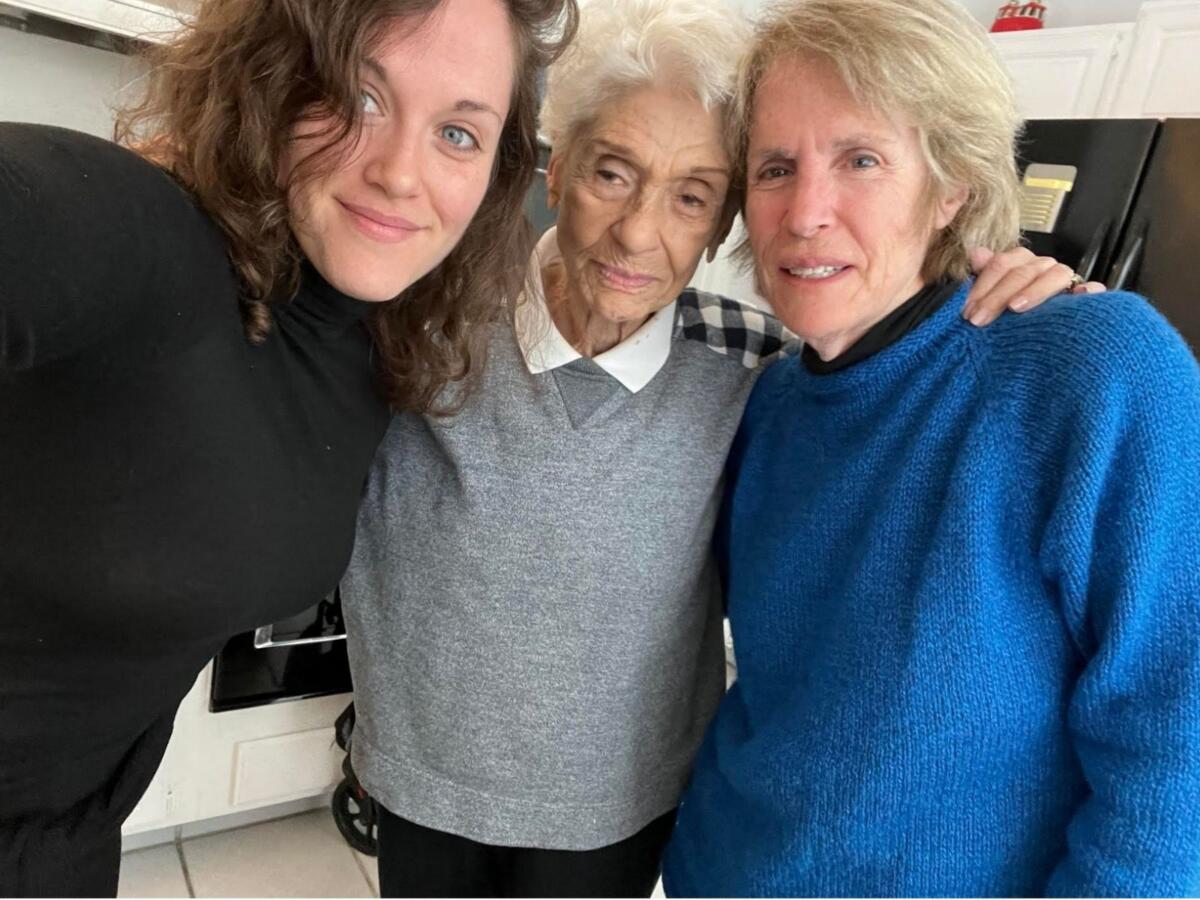
So what about the modern Jewish American family? The Settlement Cookbook had them covered. In the flip of a page, my grandmother could go from boiled mayonnaise dressing to traditional Jewish blintzes.
“The book had it all,” she tells me, “your grandfather ate anything I made him. That said, he always thought he was a better cook than me. He wasn’t.”
It is a book I love to come back to; an ever-evolving relic with a cultural and emotional impact that perpetually changes in my eyes. Is “The Settlement Cookbook” a relatively dated cookbook? Absolutely. Though the resonance it had for fleets of Jewish immigrants coming to the U.S. to start a new life is, in many ways, timeless.
